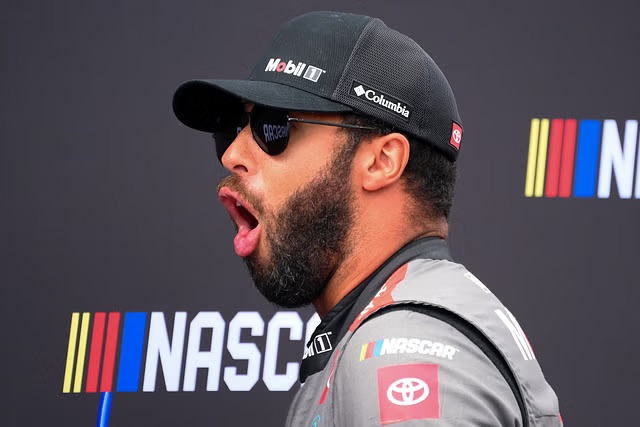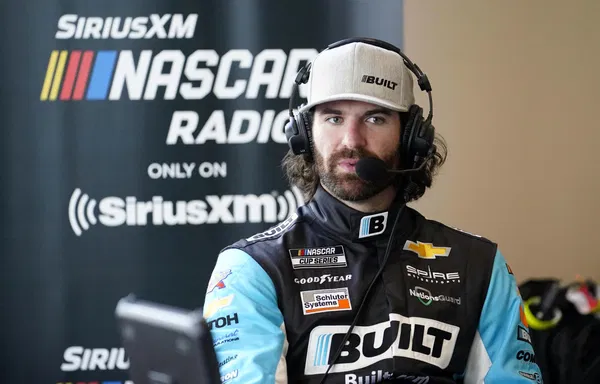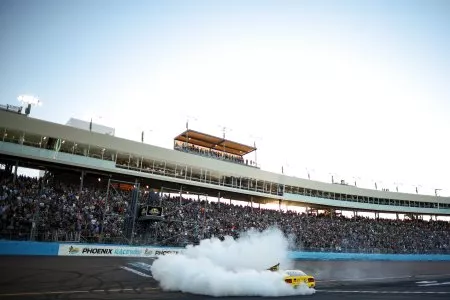In mid-March, Denny Hamlin of Joe Gibbs Racing secured a win in the NASCAR Cup Series race at Bristol Motor Speedway. This victory, one of Hamlin’s three wins during the 26-race regular season, was initially regarded as just another routine win. However, things changed when Toyota, Hamlin’s manufacturer, self-reported a violation in connection to this win, which had gone unnoticed for more than five months.
The issue arose when Toyota mistakenly rebuilt Hamlin’s race-winning engine from Bristol before NASCAR had the opportunity to inspect it. Although there was no advantage gained from this mistake, it still violated specific sections of the NASCAR Rule Book: 14.7.1.E&F and 14.7.1.1.B&E. As a result, Hamlin and his No. 11 team were penalized severely.
Hamlin was stripped of 10 playoff points and 75 regular-season points. With three race wins and six stage victories, Hamlin had amassed a total of 21 playoff points by the end of the regular season. Following the penalty, that number dropped to 11. Additionally, the loss of regular-season points caused Hamlin to fall from fourth to seventh in the standings, costing him more playoff points than initially expected. By dropping three spots, Hamlin only earned four extra playoff points instead of seven, which meant that overall, the penalty cost him 13 playoff points, not just 10.
When the NASCAR playoffs began, the points reset for all drivers eligible for the championship. Each driver’s total was reset to 2,000, with their playoff points added to that base score. Due to his penalty, Hamlin started the postseason with just 2,015 points instead of the 2,028 he would have had without the infraction. This could impact his ability to advance through the postseason rounds, as playoff points are crucial in gaining a competitive edge.
Beyond Hamlin’s own penalty, the infraction had repercussions for other drivers in the standings. When Hamlin dropped from fourth to seventh in the regular-season standings, it allowed three drivers to move up in the rankings. Joe Gibbs Racing teammate Christopher Bell moved from fifth to fourth, William Byron from Hendrick Motorsports rose from sixth to fifth, and Ryan Blaney from Team Penske advanced from seventh to sixth. As a result of their improved positions, each of these drivers received an additional playoff point.
This penalty, while seemingly isolated to Hamlin, could affect other drivers as the playoffs progress. A scenario could arise where a driver moves forward in the postseason due to Hamlin’s penalty, potentially eliminating a driver who might have otherwise advanced.
For example, if Blaney and his Team Penske teammate Joey Logano were tied in points at the end of the round of 12, only one could move on to the round of 8. If Blaney holds the tiebreaker because of a better top finish, he would advance. But without Hamlin’s penalty, which gave Blaney the extra playoff point, Logano would have been ahead by one point and would have advanced instead.
Although such a scenario might seem far-fetched, NASCAR has seen playoff spots determined by one-point margins or tiebreakers in the past. Therefore, it’s possible that a driver who had no involvement in Hamlin’s penalty could find themselves eliminated from the postseason due to the ramifications of this months-old infraction.
This situation illustrates the intricate and unpredictable nature of NASCAR’s playoff system, where penalties can have far-reaching consequences beyond the immediate driver involved. As the postseason continues, Hamlin’s penalty may still play a significant role in shaping which drivers advance and which do not.
NASCAR: Another driver could be hurt by Denny Hamlin’s…..




